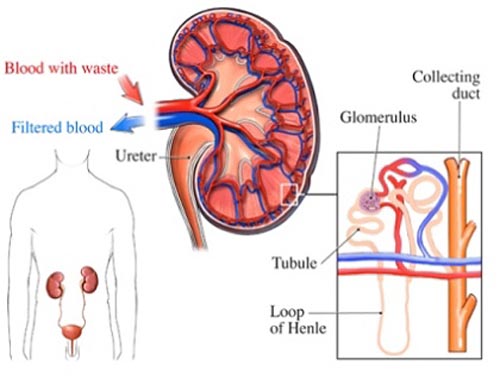Glomerulonephritis
Glomerulonephritis is a type of kidney disease in which the part of your kidneys that helps filter waste and fluids from the blood is damaged. Glomerulonephritis may be caused by problems with the body's immune system. Often, the exact cause of glomerulonephritis is unknown. Damage to the glomeruli causes blood and protein to be lost in the urine. The condition may develop quickly, and kidney function is lost within weeks or months (called rapidly progressive glomerulonephritis). A quarter of people with chronic glomerulonephritis have no history of kidney disease. The following may increase your risk of this condition: Blood or lymphatic system disorders; Exposure to hydrocarbon solvents; History of cancer; Infections such as strep infections, viruses, heart infections, or abscesses; Many conditions cause or increase the risk for glomerulonephritis, including: Amyloidosis; Anti-glomerular basement membrane antibody disease; Blood vessel diseases, such as vasculitis or polyarteritis; Focal segmental glomerulosclerosis; Goodpasture syndrome; Heavy use of pain relievers, especially NSAIDs; Henoch-Schonlein purpura; IgA nephropathy; Lupus nephritis; Membranoproliferative GN. Some patients may eventually need dialysis or transplant.
